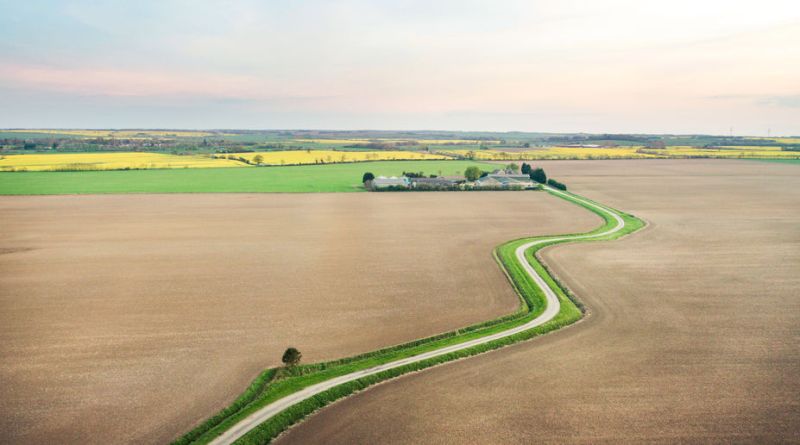
Farmers have called for strong action to ensure food production in the Fens is protected in an area vulnerable to climate change.
The importance of Fenland farming in eastern England has been put in the spotlight in a new report launched on Friday 17 May.
'Delivering for Britain: Food and Farming in the Fens' offers a look into the contribution of this rich agricultural and natural landscape to food in the UK.
The document maps out how local farmers grow produce in abundance and are at the forefront of mitigating the impact of climate change.
Farmers have now issued strong calls for action to ensure the area is protected for the future.
Ever since the first attempts to drain the Fens a millennium ago, there has been an ongoing battle to protect its soils from sea and river flooding.
The Fens is well protected, with more than 60 miles of coastal sea banks and 96 miles of fluvial embankments. However, climate change poses a serious threat.
Predictions of sea level rises of up to one metre by 2080, together with an increase in the frequency and intensity of storm surge events, mean it is crucial flood defences in the Fens are both maintained and improved.
'Successful and sustainable future'
NFU Vice President Stuart Roberts launched the report at an event at Park Farm in Thorney, Cambridgeshire on 17 May, saying Fenland agriculture is 'hugely important'.
He said the report “will act as a one-stop shop for key decision makers to inform policy in the years ahead and secure a successful and sustainable future for this unique landscape.”
The report points out that well-maintained flood defences are essential to protect the people, businesses and the 1,500 square miles of the Fens, much of which is below sea level.
Internal Drainage Boards are responsible for land drainage and flood defences and they maintain a staggering 3,800 miles of watercourses and 286 pumping stations, with a combined capacity to pump the equivalent of 16,700 Olympic-sized swimming pools in 24 hours.
Many of the farmers featured in the report attended the launch, along with representatives from local and national government, wildlife and environmental organisations and voluntary groups.
Prominent Fens’ farmer Michael Sly hosted the event and took guests on a tractor and trailer tour to demonstrate how the farm combines productive agriculture with protecting and enhancing the environment.
TV presenter and farmer Jimmy Doherty has written the foreword for the report, saying: “The Fens is the engine room of British agriculture and horticulture, and a unique farming hub.
“Blessed with superb, nutrient-rich soil, which helps us grow and sustain an abundance of high quality produce that is the envy of the world, the Fens provides everyone from top restaurants and supermarkets to home cooks with the best possible raw ingredients for their dishes.”
